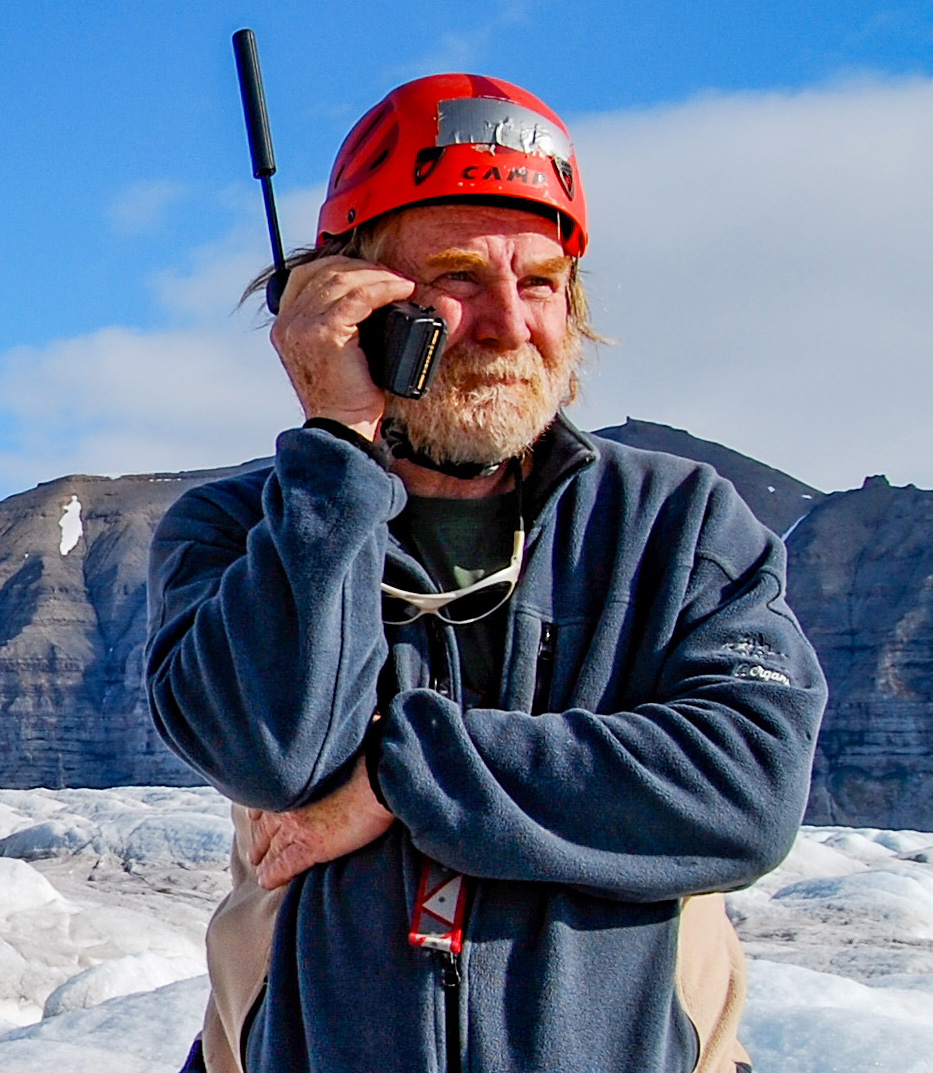Douglas I. Benn
Douglas (Doug) I. Benn (St. Andrews University, UK) has played a foundational role across a huge swath of glaciology, including studies of Snowball Earth, englacial hydrology, debris-covered Himalayan glaciers, surging glaciers and iceberg calving.
Among the most valued and impactful contributions to the community is the comprehensive textbook Glaciers and Glaciation, co-authored with David Evans. Dr Benn’s ability to observe, then synthesize a topic and find underlying and unifying principles distinguishes him in the field of glaciology.
Dr Benn’s approach to glaciological problems integrates diverse data, including field data, to identify key principles and processes. For example, his recent work on surges sought an underlying principle to explain the diverse behaviour of surging glaciers based on their mass and enthalpy budgets. A similar approach infuses Dr Benn’s pioneering work in iceberg calving. Seeking to bridge the divide between increasingly computationally focused fracture mechanics and empirical calving laws, Dr Benn introduced a new calving law based on longitudinal strain rates. His insight into these problems has been so powerful in part because of his ability to entrain collaborators with different skill sets. The calving law Dr Benn developed was easily ingested into flowline models and was adopted almost immediately, providing some of the first physically based estimates of Greenland glacier retreat.
Similarly, Dr Benn fostered collaborations with computational geoscientists to develop the Helsinki Discrete Element Model, a state-of-the-art model that provides stunningly realistic fracture patterns. This work is a platform for exploring the mechanisms and rates behind the controversial marine ice-cliff instability and the influence of ocean forcing on glacier stability.
In addition to Dr Benn’s direct contributions to the field, he has been an effective and valued mentor to numerous early-career researchers. Through graduate supervision and leadership of the advanced glaciology courses at UNIS he has instilled an infectious passion and enthusiasm for the field of glaciology in his students. Dr Benn’s enthusiastic inquisitiveness, ability to see to the heart of a problem and willingness to identify and pursue unorthodox approaches has led to transformational innovations across multiple areas of glaciology.
On behalf of the Awards Committee of the International Glaciological Society
Jeremy Bassis, Chair.

